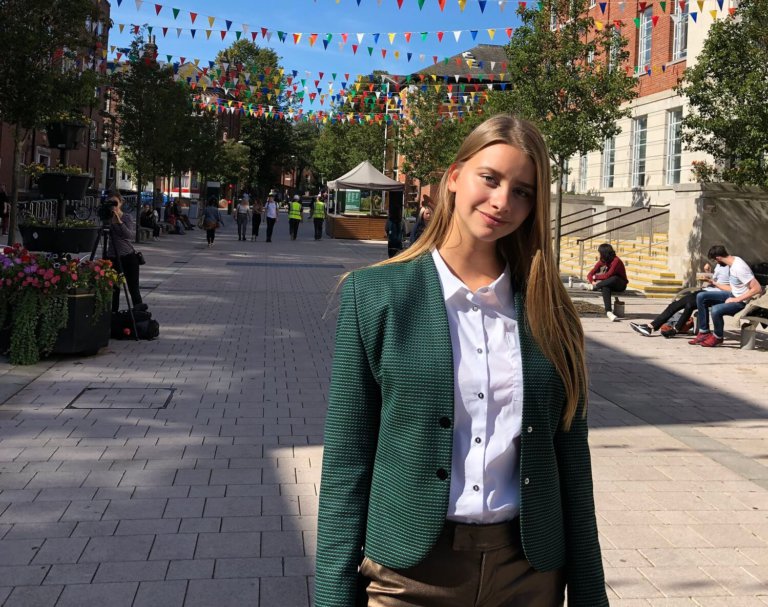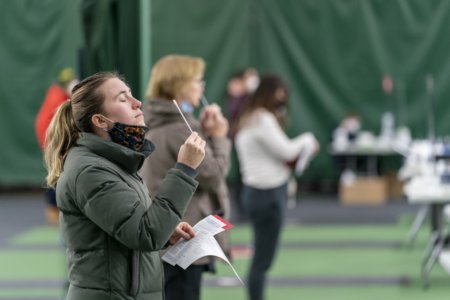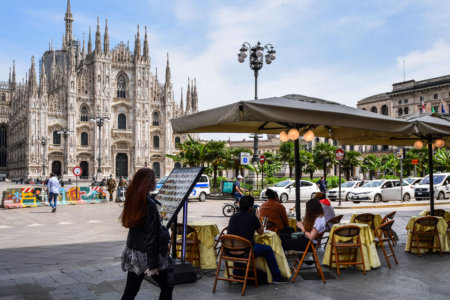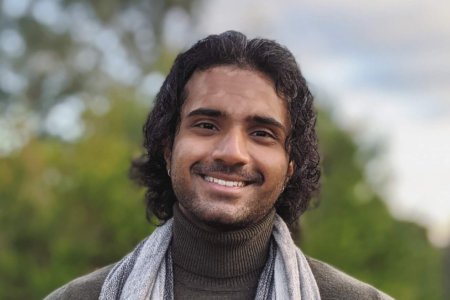
Natalia Nassonova has always been very outward-looking and willing to explore the world. Having spent several years of her life outside of her home country, it was only natural for her to look forward to moving to a new country as a BSc in Natural Sciences student at the University of Leeds. For Natalia Nassonova, the challenges of learning how to live independently and adapting to a new culture are experiences she cherishes. “Studying abroad provides you with a wonderful opportunity to meet new people from all over the world with unique backgrounds and perspectives — something I especially enjoy about my daily life in an international uni,” Nassonova tells us.
Natalia Nassonova is from Tallinn, a tech-hub situated in a small and lovely European country: Estonia. Her must-visit spots back home? The Christmas market for some Glögg (a mulled wine-like drink) and pipparkooks (Estonian gingerbread cookies), Old Town for its unique history, and Pirita to hike with the freshest air. These days, she’s busy ticking off her must-visit list in the UK. This includes visiting Cambridge, Wakefield, and Bath — destinations that have been recommended to her multiple times. “So far, I have mainly been around Yorkshire, and I can definitely say that York, Harewood House, and the Richmond Tea Rooms in Manchester are well worth visiting!” she shares.
We caught up with Natalia Nassonova to discuss more about her plans, her role as a UKCISA ambassador and what it’s like pursuing a BSc in the UK:
What made you choose to pursue your BSc degree at the University of Leeds?
I came to the School of Food Science and Nutrition in 2019 and spent six very productive months there before I had to hurry back home in March 2020 because of the pandemic. I decided to transfer to a broader degree and get my BSc in Natural Sciences so I could explore academia in Leeds a bit more. Both courses have allowed me to meet prominent researchers working across a plethora of different areas. One time, listening to a lecture on NMR spectroscopy, I looked up my professor’s name on the Leeds Uni webpage and realised he has done groundbreaking research on retinoic acid evolution and drug delivery methods. From this, I felt so inspired and motivated to study. This is what I enjoy the most about being a BSc student at the University of Leeds, you are taught by experts in their field.

Finding friends that eventually felt like her family away from home was important for this BSc student. Source: Natalia Nassonova
Do you think it would have made a difference if you had pursued a BSc degree at a local institution? If so, why?
Definitely, embracing the challenge of changing my cultural setting and starting an independent life in a new place has enormously contributed to my personal development. I doubt I would have become as responsible and determined if I had decided to enrol in an institution in my hometown.
What has been your most memorable class so far — and why?
So many memorable ones! I think the most memorable was this year’s biochemistry online lab class — taking part in experiments virtually turned out to be surprisingly useful.
How have your lecturers supported you as a BSc student thus far?
As a BSc student, the University of Leeds has a great representation of prominent academics. My Human Physiology lecturer last year amazed me most — each of his lectures was a mini show with cool special effects on slides and well-delivered key messages. Over the 20 credits, we learned a lot not only about physiology, but also about his area of expertise, which was Diabetes, and even picked up a few useful marketing and research skills.
Tell us about your role at UKCISA as a student ambassador. What goals do you have to improve the #WeAreInternational Campaign?
I am currently in the induction process, gaining policy knowledge and getting introduced to the network. I feel extremely supported and encouraged by my fellow ambassadors and other UKCISA members to develop my ideas and bring forth new suggestions. I am planning to focus on raising resources to create more EU scholarships, especially after Brexit, as well as preserving the strong international reputation of UK universities. In order to do this, the fellow ambassadors and I are planning to gather suggestions of international students all over the UK via Student Charter. The policy has to be shaped directly by those who are going to experience its influence.
What are your academic goals as a BSc student? What skills have you gained so far?
My academic goals include achieving a first-class degree, and discovering the area of science I am particularly passionate about. At this early stage of my joint BSc degree, I feel like there is so much to discover, especially when educated and inspired by interdisciplinary researchers. Throughout the last 13 months of my education, I have improved my research and information consolidating skills. One of the key advantages of a UK education is that you learn how to study independently and plan your study routine.
Your day is not packed with just sitting in lecture halls, you are also given plenty of opportunities to explore life on-campus and what is of interest to you as an individual.

When she’s not studying towards her BSc degree, Nassonova is advocating for more support for EU students as a UKCISA ambassador. Source: Natalia Nassonova
Do you plan to progress into further study in your BSc studies? What do you plan to do after graduating?
After my BSc studies, I might potentially join the research field after graduation and pursue a PhD. Additionally, I hope to remain in academia and be involved with the international scientific community, but for now, we shall see what happens in the next three years.
What’s one thing you miss from home, and how do you substitute it?
I miss the comfort of being at home — my granny cooking for me and my dad making me a cup of hot cocoa while watching TV with the rest of my family in the evening. I’m a very family-oriented person, so it was important to find like-minded friends to live with when I came to study for my BSc in the UK. I successfully managed to do so. Between my friends and I, we have weekly cultural dinners, watch movies and work out together. Having spent the entire semester in lockdown with them, it feels like they are me second family!










